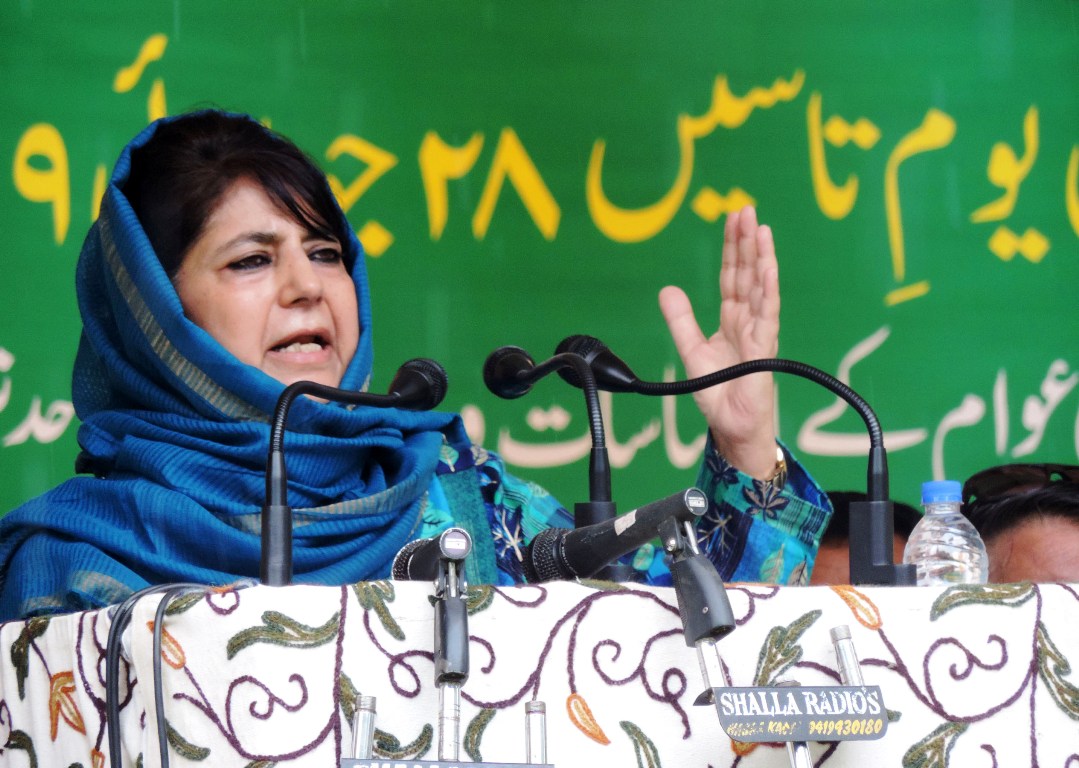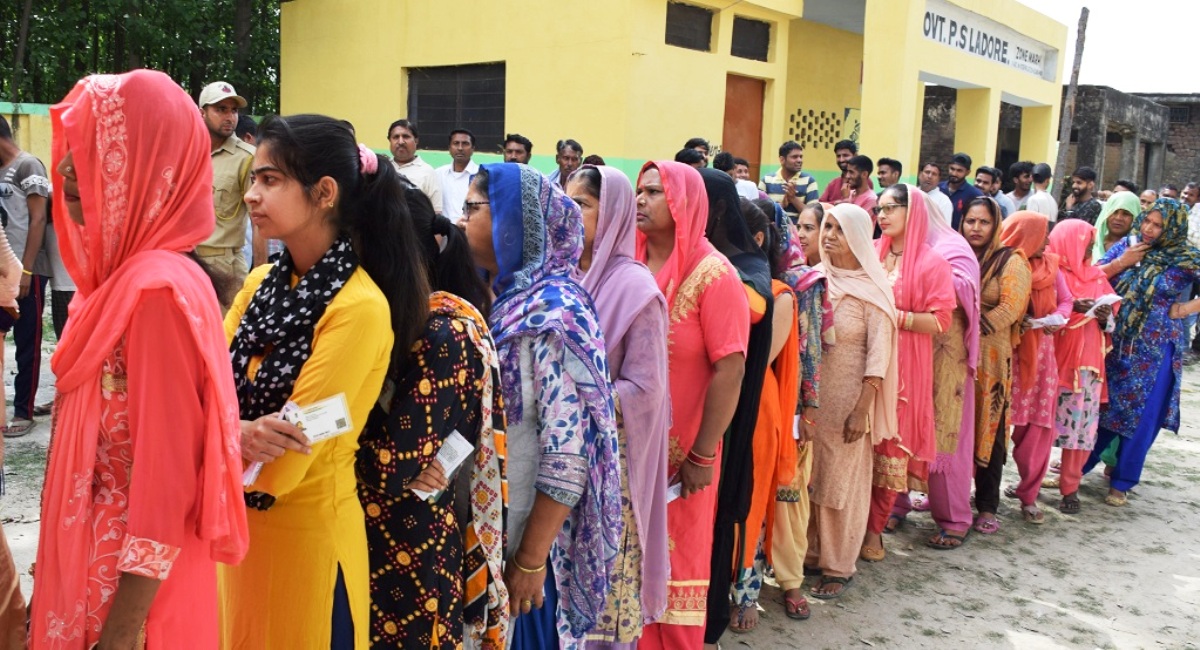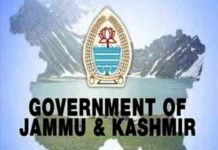KL Report
SRINAGAR
“The Indian army court-martial verdict is not a beginning or a water-shed moment for Jammu and Kashmir, but an illustrative case of the manner in which political considerations and interests of the Indian army overrule larger principles of justice and accountability,” this was stated by the Jammu Kashmir Coalition of Civil Society (JKCCS) on Friday in reaction to the court martial verdict about the Machil fake encounter case in which 7 army men were convicted and sentenced to life.
JKCCS is human rights group active in the state.
A statement from the group said, “This is apparent when the larger context of human rights violations, court-martials, and the specifics of the Macchil court-martial are considered. The processes of justice normally lead to change, but as matter of fact after the newspapers have reported the Macchil fake encounter court-martial judgment, Kashmir has witnessed yet another killing of civilian in Kulgam area by Indian army personnel.”
“First, the Macchil fake encounter is one of the numerous human rights violations in Jammu and Kashmir, where the Indian State has perpetrated 8000+ enforces disappearances, thousands of fake encounters including Pathribal, sexual violence and torture, including that of Kunan Poshpora in 1991, 7000+ unmarked/mass graves and massacres,” the CCS statement said.
In the Kunan Poshpora case, the Indian army denies the charges, and maligns the survivors and activists as being motivated by compensation and of being mala fide. In Pathribal, the Indian army chose not to carry out a court-martial, despite accepting that there was a fake encounter. “Essentially, impunity has been the norm and convictions such as in the Machil case, the exception,” the statement said adding “considering that the Indian army made public their position on Pathribal in January 2014, and is presently contesting Kunan Poshpora, the Machil conviction is no beginning.”
In 2012, IPTK released a report where, based on government documents, 500 State forces personnel were indicted of human rights violations in Jammu and Kashmir. Of 239 army personnel named, 127 were officers. “The Indian army response: a complete dismissal of the report,” CCS statement said.
Further, the statement added “in this report, fake encounter cases carried out by the army were listed. In the case of the fake encounter of three civilians in July 1997 by Major Ganpati, 28 Rashtriya Rifles, Ministry of Defence declined sanction for prosecution. In the January 2000 case of one civilian killed in a fake encounter by Major Raghwan R. Singh, 5 Kumaon Regiment, Ministry of Defence declined sanction for prosecution. In the 1998 Sailan massacre of 19 civilians, clearly a fake encounter by the Indian army and Jammu and Kashmir Police, the Indian army has taken no action and the CBI, investigating the case, appears to be pursuing low ranking police personnel only. On 20 April 2004, four civilians were killed in the Jammu region by personnel of the Rashtriya Rifles, but despite Captain Sumit Kohli, who was a whistle blower, revealing the fake encounter, the Indian army instead of taking action against the culpable personnel, reportedly murdered Captain Sumit Kohli,” the CCS statement said adding “there are numerous other cases of army atrocities and cover ups.”
“The Macchil conviction is a political decision,” statement alleged elaborating “the conviction was reportedly done two months ago, but has only now been made public, on the eve of the assembly elections in Jammu and Kashmir. Further, the conviction is now to be confirmed by the Northern Army Commander. Besides the fact that to begin with a court-martial was held, and not a trial in a civilian court, it is clear that the court-martial system is conscious of and guided by larger political interests.” While the Pathribal case is “covered up”, the Macchil case is not. In the case of Pathribal, CCS said, “there was institutional support and approval, manifested by the visit of L.K. Advani, then Deputy PM, of the BJP led government, to congratulate the Pathribal perpetrators.”
Lastly, CCs said, “this is not the first court-martial conviction by the Indian army. Through limited RTI information accessed [after repeated efforts that illustrates the opaque nature of the court-martial process], two lists dated 28 March 2012 and 18 June 2012 pertaining only to the Rashtriya Rifles, and a separate communication dated 22 June 2012 relating to one Rashtriya Rifles court-martial, was provided. The total number of court-martials is: 58. Based on information provided in the RTI, except in three cases, there is no way to discern whether these court-martials relate to violations against civilians or other army personnel. But based on other available information it appears only a total of five cases in these lists relate to civilians. Only NINE officers appear to be involved in all these court-martials. Further, what is clear is that of these 58 cases, 20 appear to be quite clearly related to more minor crimes. Of the remaining 38 cases, appropriate conviction/punishment appears [as there is no record to analyze] to have been provided in only 21 cases. Of particular note are two cases of rape, one against Captain Ravinder Singh Tewatia [for the rape of mother and daughter in February 2000 in Banihal], and the other against Major Rehman Hussain [for the rape of mother and daughter in November 2004 in Badra Payeen]. Captain Tewatia was convicted by the court-martial and sentenced to imprisonment for seven years. Major Hussain was dismissed from service as he was reportedly only convicted for outraging the modesty of the victims. Both accused challenged their decisions in the High Court of Jammu and Kashmir and received verdicts in their favor. While the Captain Tewatia case is still pending further legal challenge, Major Hussain has reportedly returned to service.”
“Therefore, the court-martial process is rare, arbitrary, opaque, and not a commitment to justice or an effort to ensure accountability,” the CCS statement concluded.















